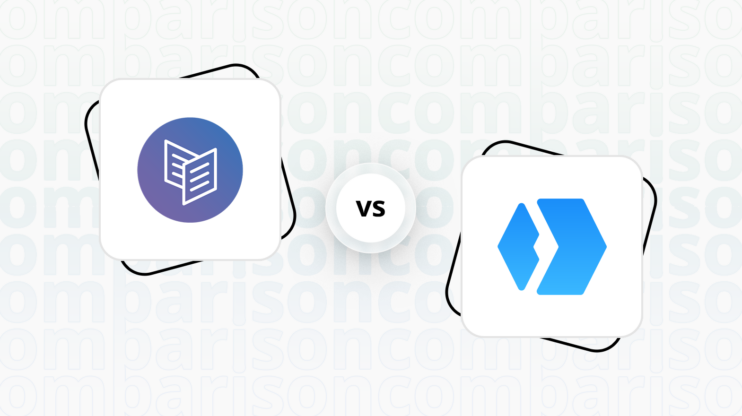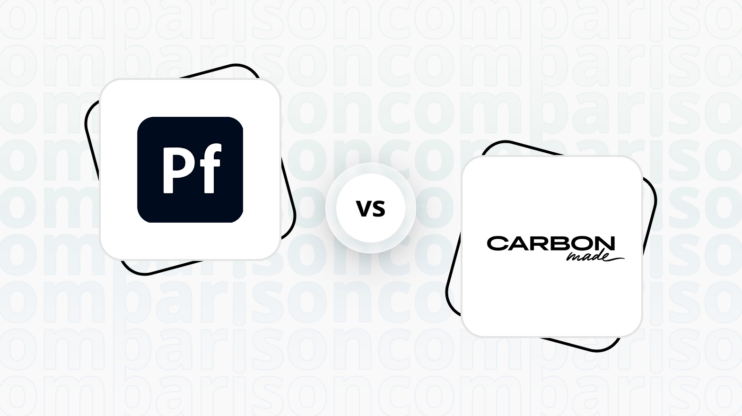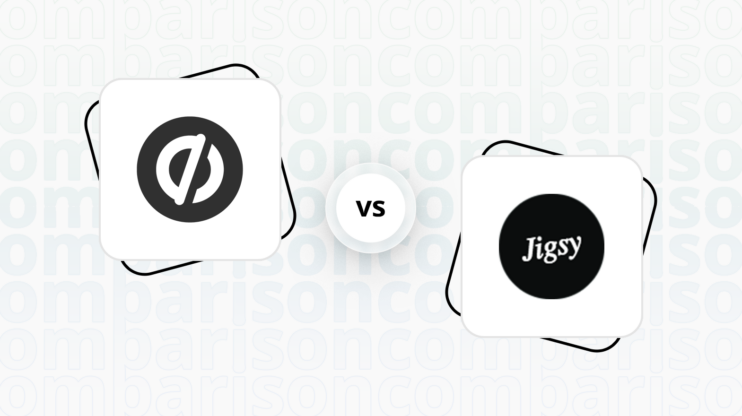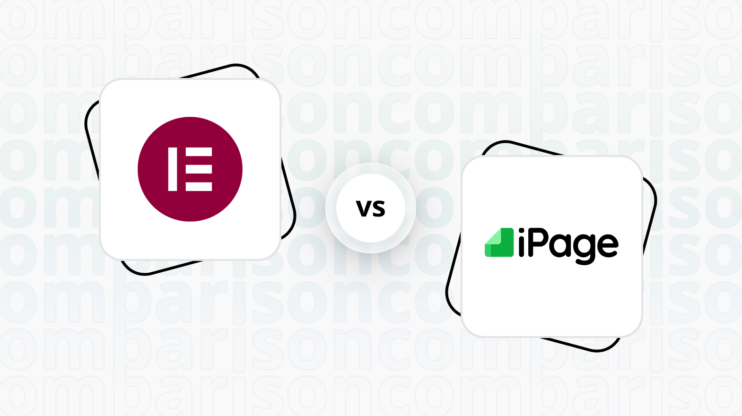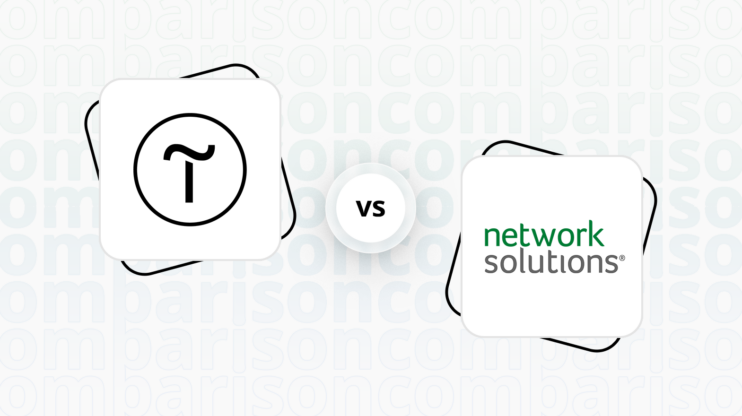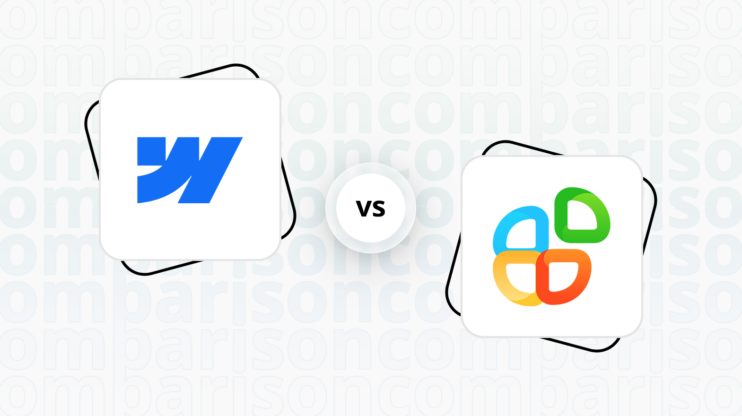Final verdict
Elementor and Tilda both offer unique strengths, but they cater to different user needs and preferences.
-
Elementor (Overall Grade: 7.4/10)
is a powerful website builder plugin for WordPress, known for its flexibility and extensive customization options. It excels in design functionalities, ease of use, and advanced marketing tools. Elementor is ideal for users who want to create highly customized websites with a wide range of widgets and templates. Its integration with WooCommerce makes it a strong choice for ecommerce, and its AI capabilities further enhance the design process. When comparing Elementor vs Tilda, Elementor stands out for its comprehensive features and robust support. -
Tilda (Overall Grade: 6.7/10)
is a web-based platform designed for creating visually appealing websites without coding. It offers a user-friendly interface and a variety of pre-designed blocks and templates, making it suitable for bloggers, small businesses, and digital marketers. Tilda focuses on typography and visual content, providing tools for creating professional-looking websites quickly. While it may not match Elementor’s flexibility and advanced features, Tilda is a great choice for users who prioritize ease of use and design aesthetics. In the Elementor vs Tilda comparison, Tilda is a solid option for those looking for simplicity and visual appeal.

|

|
|
|---|---|---|
|
Design functionalities & templates |
9.2 |
8.6 |
|
Ease of use |
8.8 |
8.0 |
|
Ecommerce |
7.6 |
7.2 |
|
Website Editors |
8.5 |
8.0 |
|
Product testing options |
5.6 |
5.9 |
|
Price |
8.0 |
8.0 |
|
Hosting quality |
7.8 |
6.2 |
|
Website speed optimization |
6.7 |
4.9 |
|
Plugins and integrations |
7.6 |
7.6 |
|
Marketing features |
7.8 |
6.9 |
|
Customer support |
7.2 |
5.5 |
|
Security |
9.1 |
7.6 |
|
AI capabilities |
7.4 |
2.1 |
|
User Management |
8.8 |
7.3 |
Best for ecommerce
 7.6
7.6
 7.2
7.2
Verdict
: Elementor and Tilda both offer solid ecommerce capabilities, but they cater to different needs. Elementor is ideal for those who need deep customization and advanced features, while Tilda is perfect for users seeking simplicity and ease of use.
-
Elementor
: Known for its integration with WooCommerce, Elementor provides extensive customization options for product pages and a variety of ecommerce-specific widgets. It is suitable for users who need flexibility and are comfortable with a steeper learning curve. Elementor’s ecommerce score: 7.6. -
Tilda
: Tilda offers a user-friendly platform with ready-made templates and various payment system integrations. It is ideal for small businesses and users who prioritize ease of use and quick setup. Tilda’s ecommerce score: 7.2.
Best for informational & business websites
 8.9
8.9
 8.4
8.4
Verdict
: Elementor slightly edges out Tilda for creating informational business websites, thanks to its higher score and extensive customization options.
-
Elementor
: Elementor is a powerful website builder plugin for WordPress, known for its flexibility and wide range of widgets and templates. It allows users to design every detail of their website through a visual drag-and-drop interface, making it suitable for both beginners and professional web designers. With a score of 8.9, Elementor excels in providing a user-friendly experience, comprehensive design functionalities, and robust hosting quality, making it an excellent choice for informational business websites. -
Tilda
: Tilda is a web-based platform designed for creating visually appealing websites, landing pages, and online stores without coding skills. It offers a wide range of pre-designed blocks and templates, focusing on typography and visual content. With a score of 8.4, Tilda is suitable for bloggers, small businesses, and digital marketers who prioritize design and ease of use. However, when comparing Elementor vs Tilda, Elementor’s higher customization flexibility and extensive learning resources give it a slight edge for informational business websites.
Detailed comparison
Design functionalities & templates
Design FunctionalitiesRepresents how well each platform allows for creative design and customization of websites.Score Components:
- Template Variety (30%): Range and quality of design templates.
- Customization (30%): Flexibility and options for design alterations.
- User Interface (20%): Ease and intuitiveness of the design process.
- Responsiveness (10%): Adaptability to different devices and screen sizes.
- Innovation (10%): Unique design features and tools.
 9.2
9.2
 8.6
8.6
🏆
Winner: Elementor.
Elementor edges out Tilda with a higher score in design functionalities and templates, offering a wider range of templates and designs, more customization flexibility, and more creative design possibilities.
Elementor offers an extensive range of templates and designs, with over 100 responsive website kits covering various categories. Additional sources like Envato Elements, Template Monster, and others provide a wider selection, including free and premium options, catering to diverse web design needs.
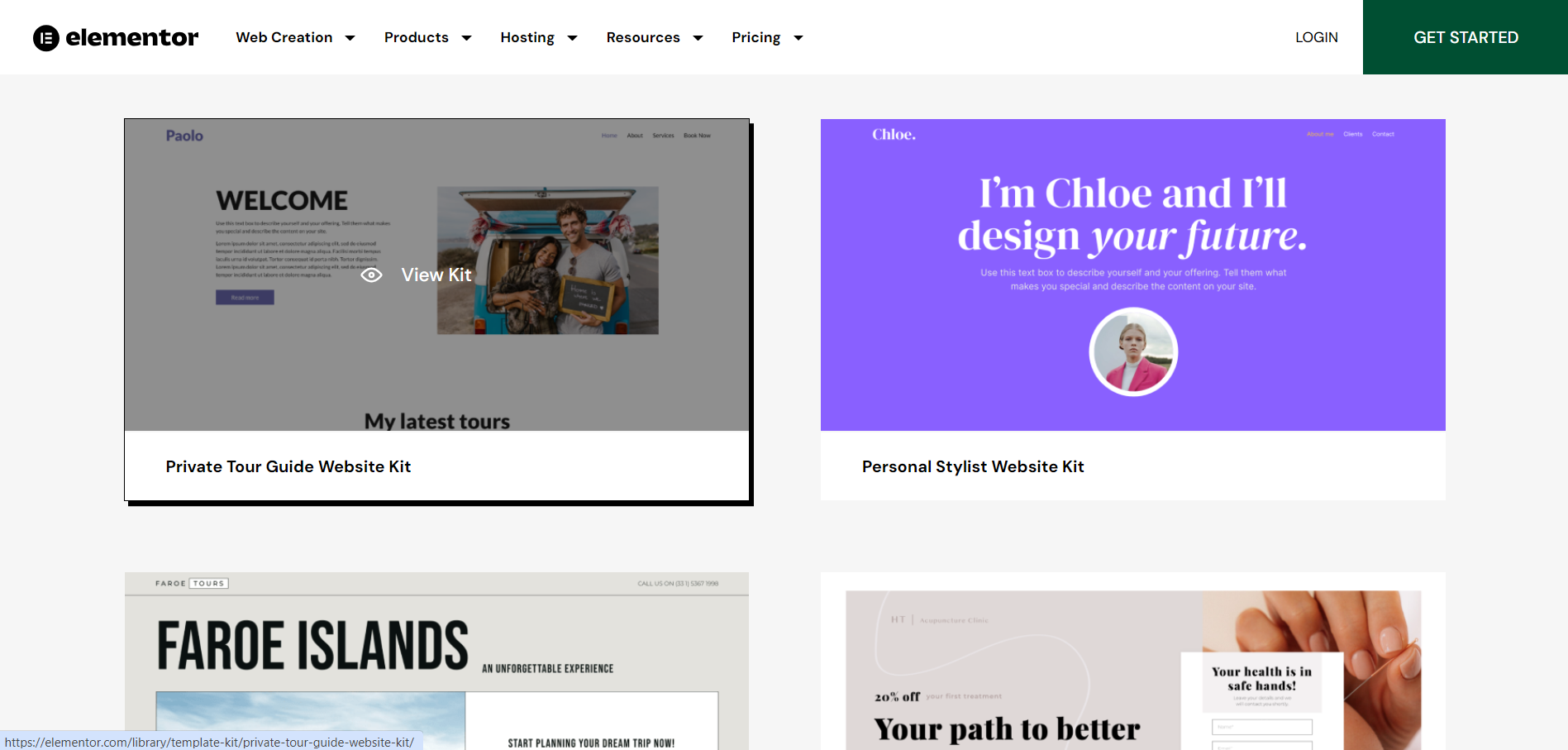
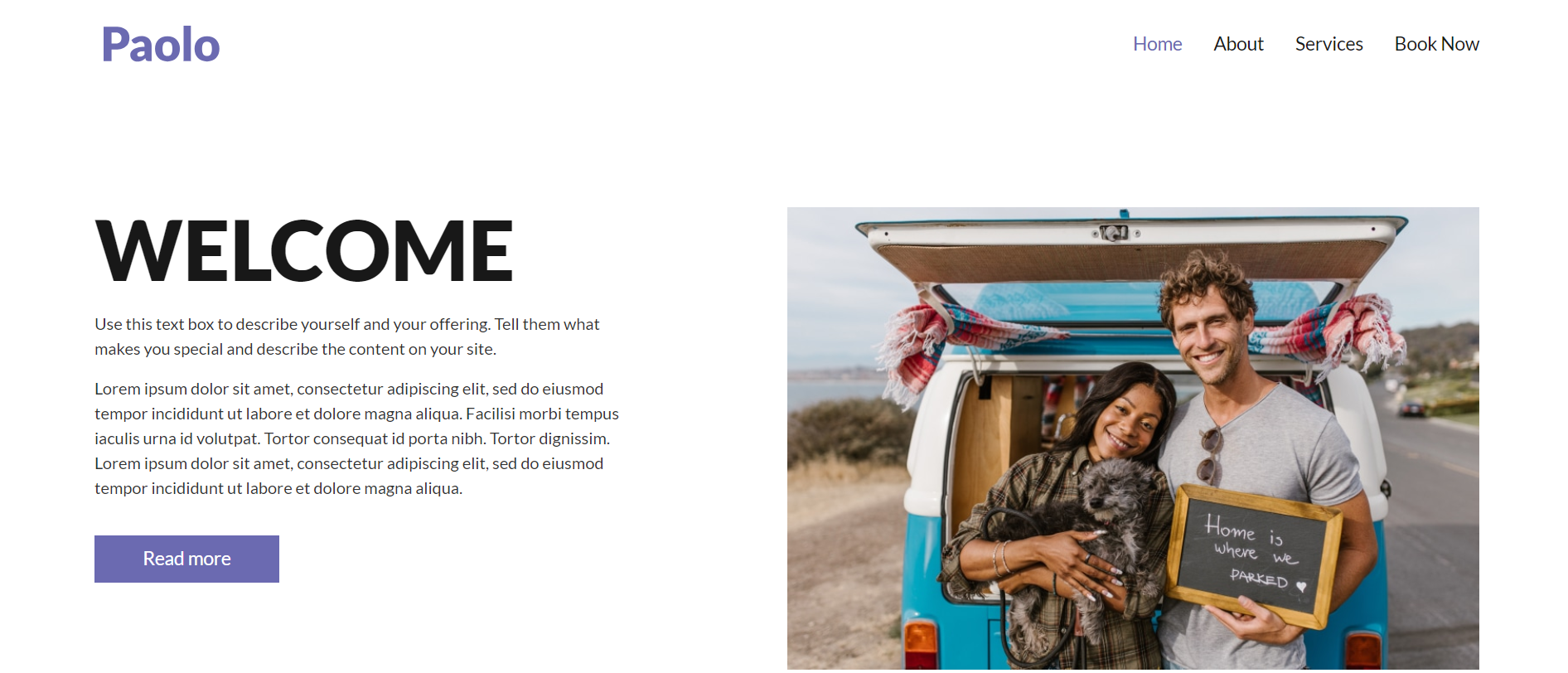
On the other hand, Tilda offers a diverse selection of design templates that are suitable for various types of content, all crafted by professional designers. These templates emphasize gorgeous typography, minimalist blocks, and striking images. Users have the flexibility to modify any template significantly or even start from scratch, ensuring the final website can meet a wide range of design preferences and requirements.
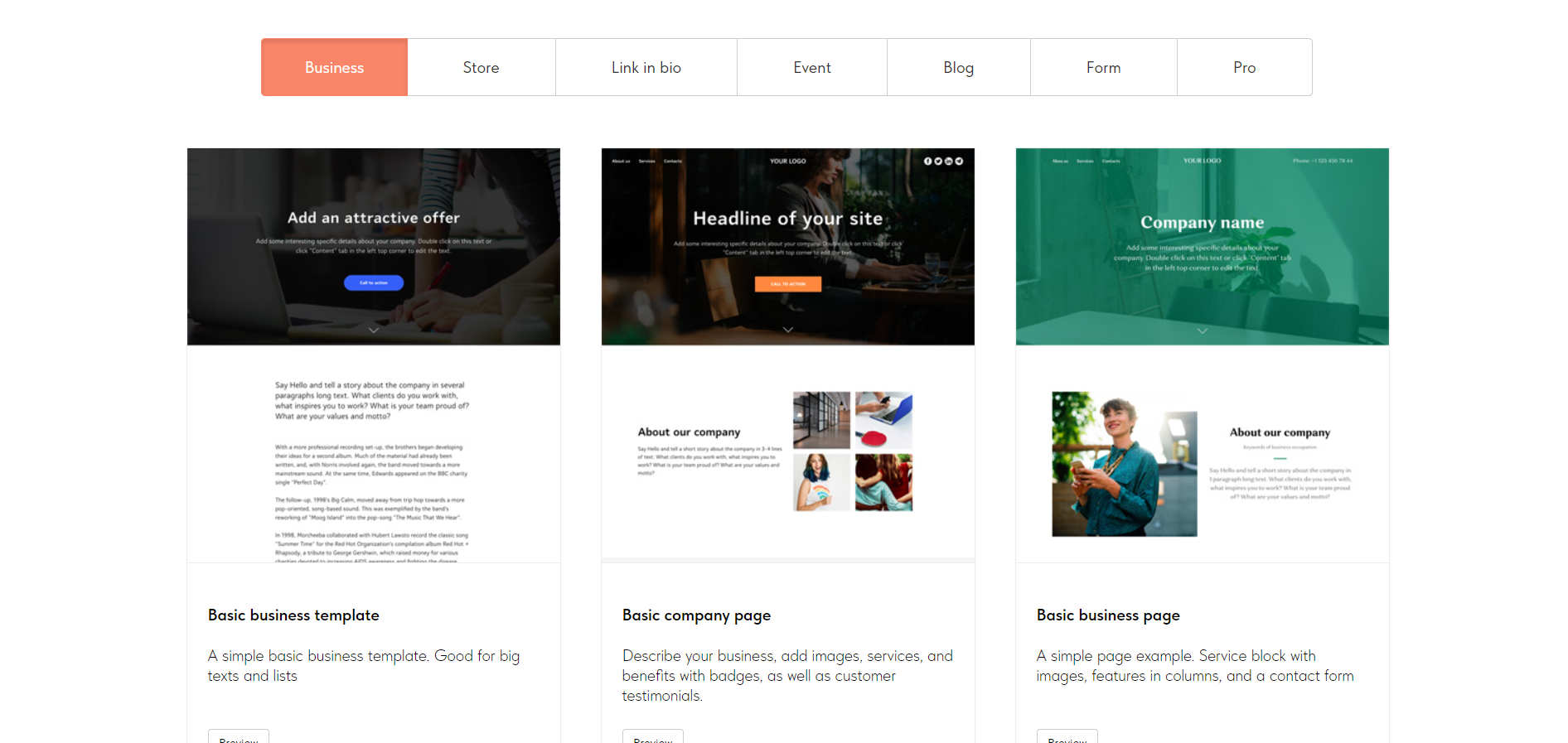

Get a head start on website creation with AI
Create a custom website tailored to your business needs 10X faster with 10Web AI Website Builder!
Ease of use
Ease of useReflects the platform’s overall user-friendliness.Score
Components:
- Learning curve (40%): Quickness and ease of getting started.
- Interface design (30%): Simplicity and intuitiveness of layout.
- User guidance (20%): Quality of tutorials and support.
- Flexibility (10%): Adaptability to various user skills.
 8.8
8.8
 8.0
8.0
🏆 Winner: Elementor
. Scoring 8.8, Elementor is renowned for its user-friendly interface, enabling both novices and professionals to create websites with ease. Its drag-and-drop functionality simplifies the design process, allowing users to see changes in real-time without needing to code. Tilda, with a score of 8.0, also offers a user-friendly interface and a wide range of modern, responsive templates, but it lacks a large community of users. If ease of use is a priority, Elementor is the clear winner in this category.
Learning Resources
🏆 Winner: Elementor
. While both platforms offer solid learning resources, Elementor goes a step further with its wide array of detailed tutorials and active community forums, making it easier for users to learn and adapt.
For ecommerce
EcommerceMeasures the platform’s effectiveness in supporting online business activities.Score Components:
- Ecommerce themes and templates (20%): Variety and design of templates.
- Product management (25%): Ease of managing and organizing products.
- Payment options (25%): Variety and convenience of payment methods.
- Ecommerce features (20%): Features for managing an ecommerce store.
- Integration (10%): Compatibility with external e-commerce tools and services.
 7.6
7.6
 7.2
7.2
Elementor and Tilda both offer robust ecommerce capabilities, but they cater to different needs and preferences. Elementor, with its seamless integration with WooCommerce, provides customizable product pages, a variety of ecommerce-specific widgets, and responsive design templates for building online stores. However, users may face a learning curve and potential performance issues with extensive widget use. On the other hand, Tilda offers a user-friendly platform for creating eCommerce websites with features like ready-made templates, various payment system integrations, and SEO optimization. It supports inventory management, CRM for order tracking, and tools for email marketing and membership areas.

|

|
|
|---|---|---|
|
Ecommerce themes and templates |
7.8 |
6.5 |
|
Product page customization |
8.4 |
7.0 |
|
Payment processing and commissions |
7.5 |
7.5 |
|
POS capabilities |
5.5 |
0.0 |
|
Payment gateways |
7.0 |
7.8 |
|
Product numbers |
7.0 |
6.0 |
|
Additional ecommerce features |
8.0 |
6.5 |
Elementor ecommerce features:
- WooCommerce Integration
- Customizable Product Pages
- Ecommerce Widgets
- Product Categories and Filters
- Shopping Cart Customization
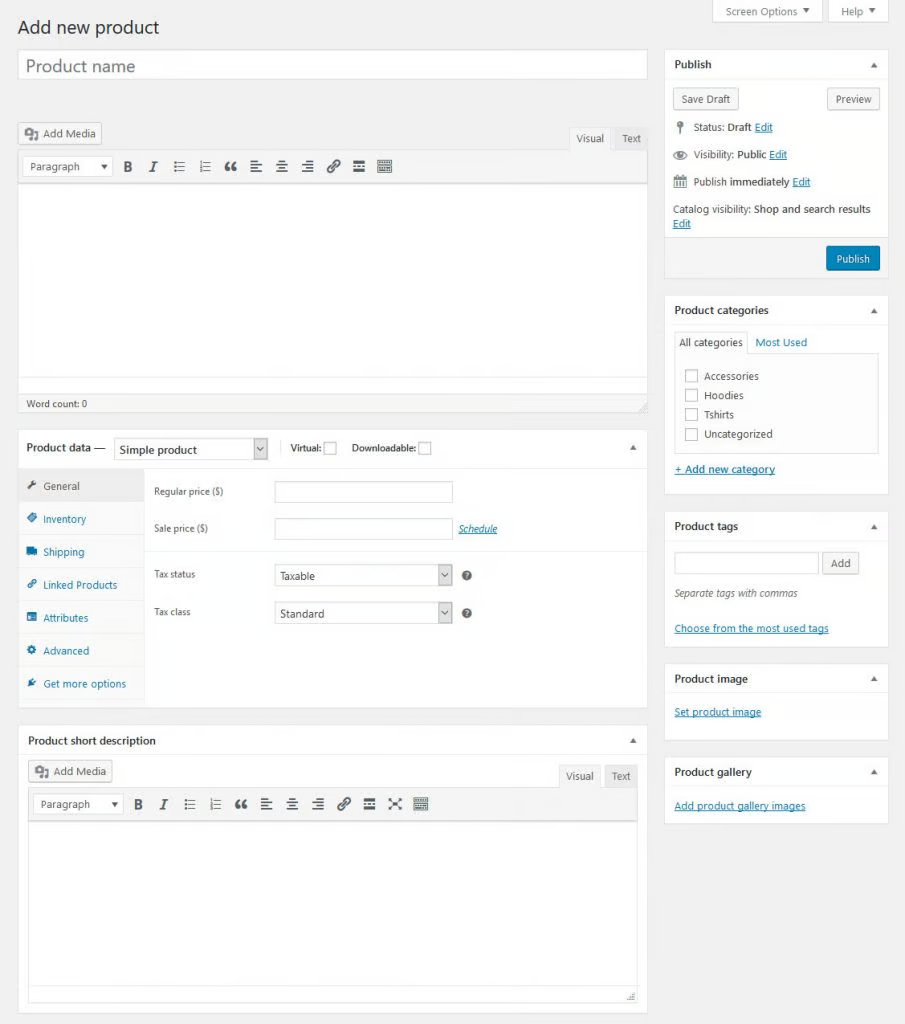
Tilda ecommerce features:
- Product Catalogs and Inventory management
- Payment Gateways integration
- Shipping options
- Order management
- Built-in CRM and marketing tools
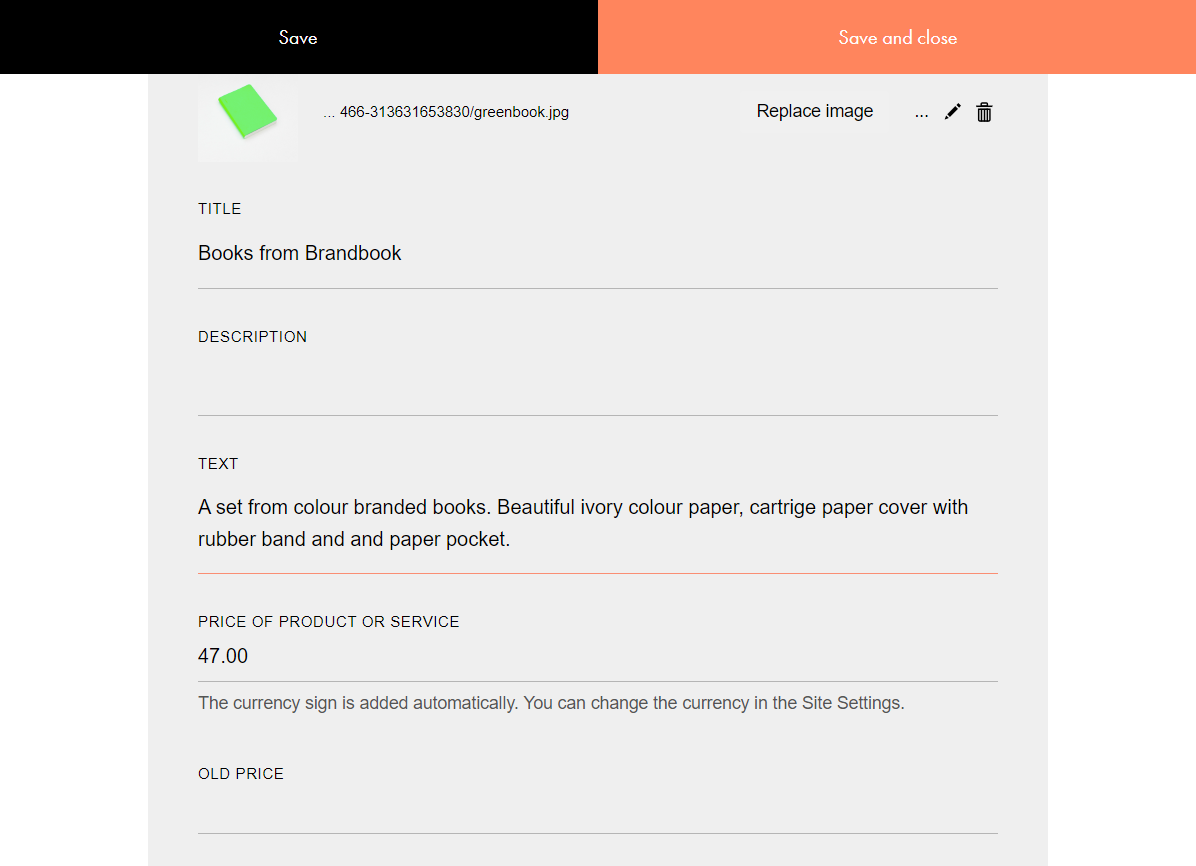
Ecommerce themes & templates
Elementor offers a diverse range of ecommerce-specific templates suitable for various online stores, from free options for budget-conscious users to premium templates with advanced customization features. These templates are designed to be mobile-responsive and SEO-friendly, ensuring optimal performance across devices and search engines. Tilda, on the other hand, allows users to build their eCommerce sites using around 20 ready-made online store templates, emphasizing ease of use and the ability to create a store without needing coding or web design skills.
Product page customization
Elementor offers extensive customization options for WooCommerce product pages, including custom layouts, WooCommerce widgets for various product elements, and options for styling product galleries and ‘Add to Cart’ buttons. It allows for the display and customization of product variants, although the number of variants is technically limited by WooCommerce, not Elementor. Tilda enables a wide range of customizations for product pages in online stores, including the design, e-commerce functionalities, and integration with external services. Features like product variants, delivery options, promotional codes, and diverse payment system integrations allow for a personalized shopping experience.
Payment processing
Elementor supports several payment gateways, notably through plugins and integrations, with Stripe and PayPal being prominent options for simple and widespread use. These gateways charge their own transaction fees, typically around 2.9% + $0.30 per transaction, but Elementor itself does not impose additional fees for transactions. Tilda supports a variety of popular payment systems such as Stripe, PayPal, and 2Checkout, allowing for easy integration to accept online payments. Tilda does not impose additional transaction fees beyond those of the payment gateways themselves.
Website Editors
Website EditorsEvaluates the platforms’ website building and editing capabilities.Score Components:
- Customization tools (40%): Range and power of editing features.
- Editor usability (30%): User experience within the editor.
- Design flexibility (20%): Freedom in layout and design changes.
- Update and maintenance ease (10%): Simplicity of updating and maintaining the site.
 8.5
8.5
 8.0
8.0
🏆
Winner: Elementor
. Elementor, with a score of 8.5, is a popular website builder plugin for WordPress that allows users to create and edit websites through a visual drag-and-drop interface. It offers a wide range of widgets and templates, enabling users to design their sites without needing to write code. Elementor is known for its flexibility, allowing for the customization of every detail on a webpage, making it suitable for both beginners and professional web designers.
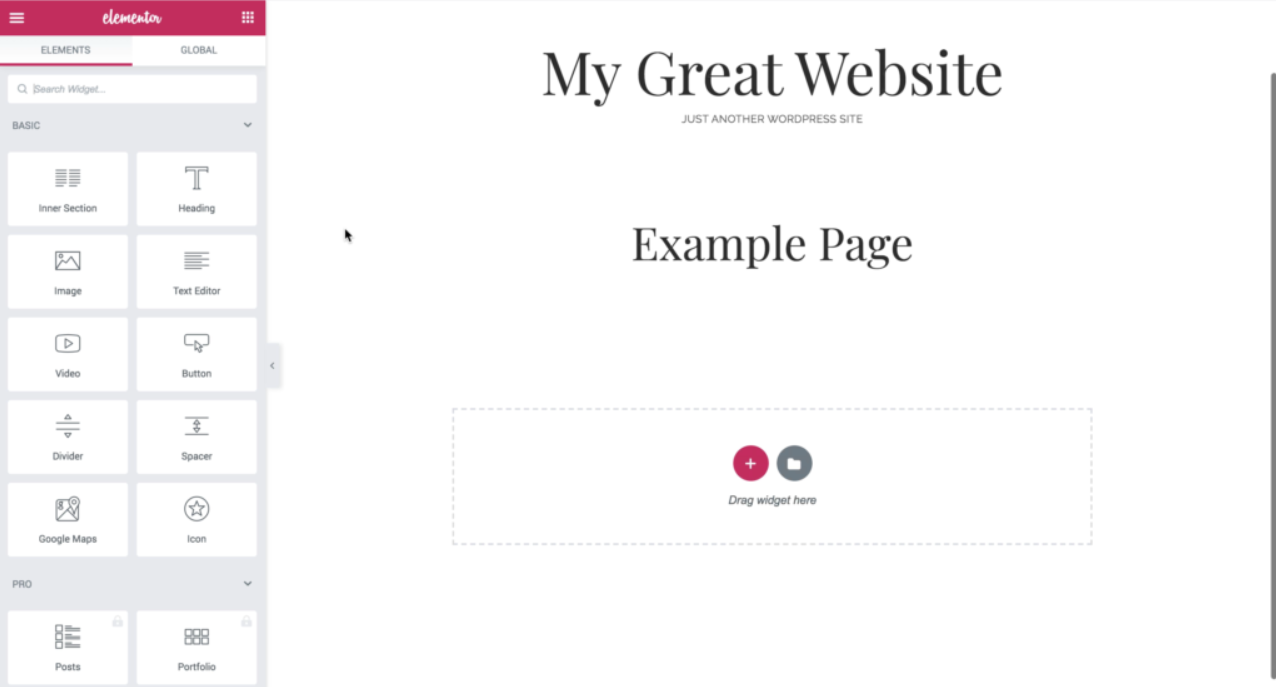
Tilda, scoring 8.0, is a web-based platform designed for creating websites, landing pages, and online stores without the need for coding skills. It offers a wide range of pre-designed blocks and templates that users can customize to fit their design needs, making it suitable for bloggers, small businesses, and digital marketers. Tilda focuses on typography and visual content, enabling users to create visually appealing and professional-looking websites.
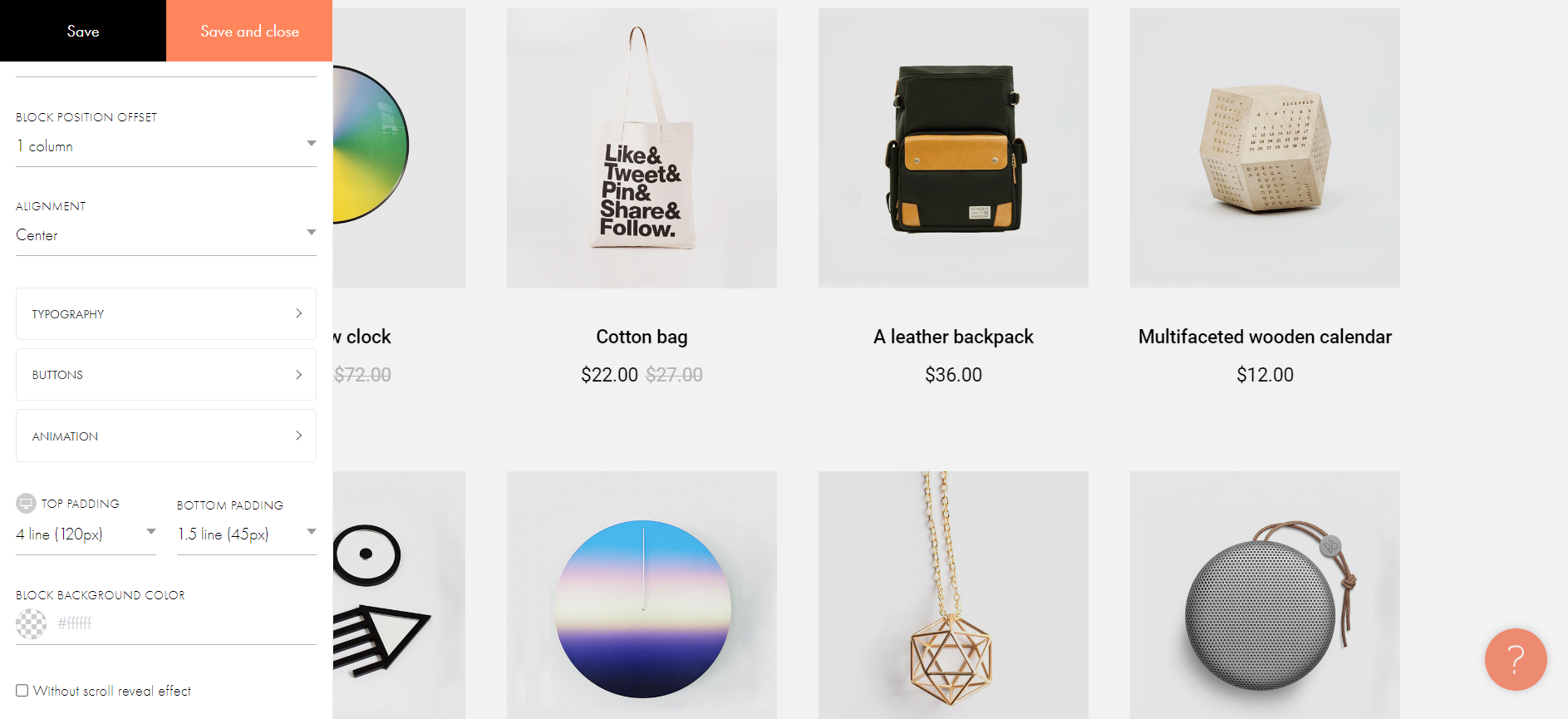
Mobile editor/app
 0
0
 5.5
5.5
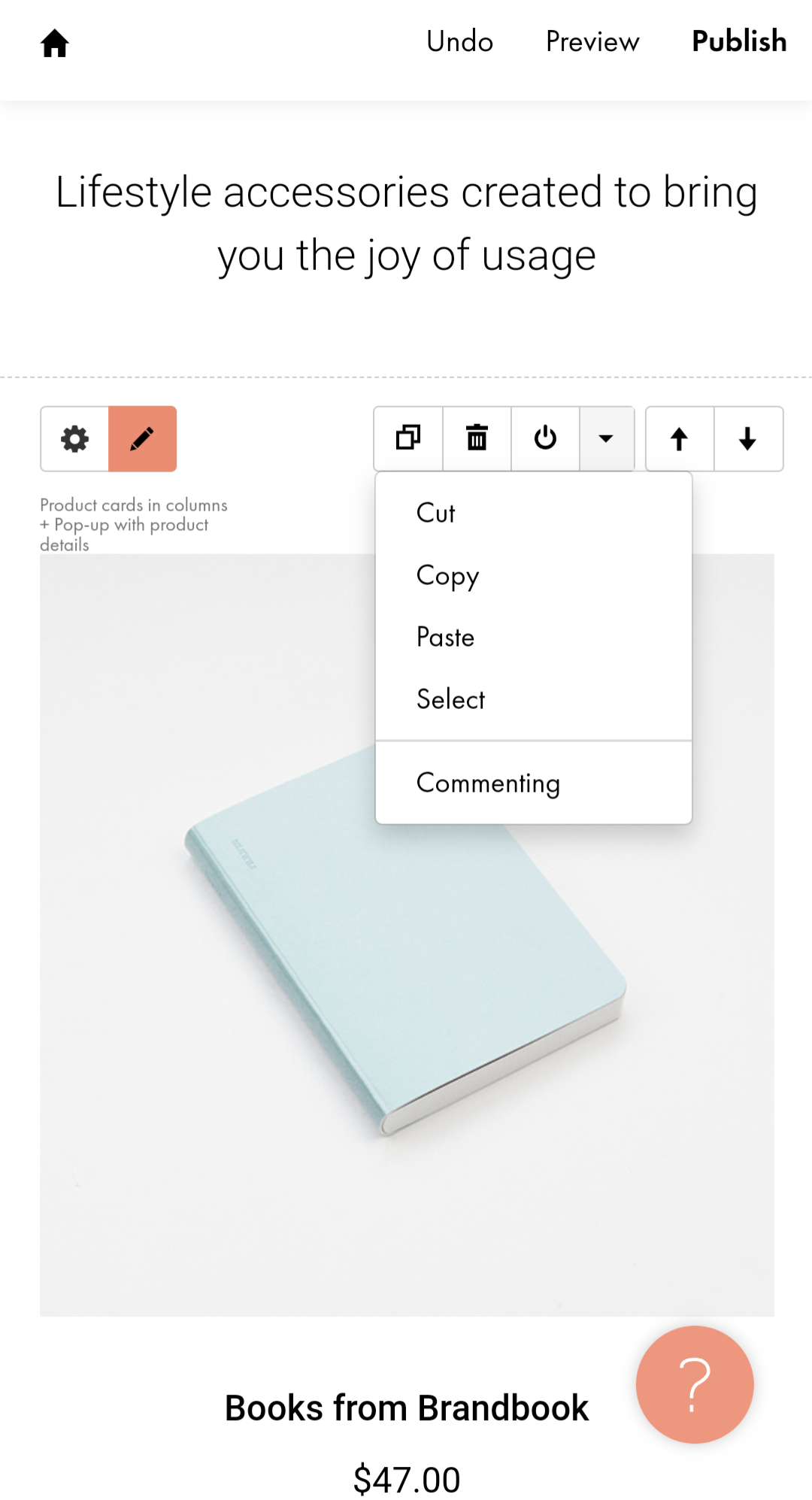
🏆
Winner: Tilda
. Both Elementor and Tilda lack a dedicated mobile app for editing websites. However, Tilda allows users to manage and edit their websites using the mobile browser version of the editor. This feature provides users with the flexibility to make changes to their websites on the go. On the other hand, Elementor does not offer any mobile editing capabilities, which can limit its usability for users who prefer to work on their websites from their mobile devices.
Tilda, therefore, is the winner in this category due to its mobile browser editing capabilities.
Product testing options
Product Testing OptionsAssesses the options for trying out platform features before commitment.Score Components:
- Trial quality (40%): Extent and usefulness of the trial or free version.
- Feature accessibility (30%): How many features are available to test.
- Trial duration (20%): Length of the trial period.
- Ease of transition (10%): Smoothness of moving from trial to paid plans.
 5.6
5.6
 5.9
5.9
Overall Result
:
Tilda wins
. Tilda scores slightly higher than Elementor with a score of 5.9 compared to Elementor’s 5.6. While both platforms offer a free version, Tilda allows testing of some premium features with the free plan, whereas Elementor only allows testing of premium features during a refundable period. Elementor, however, offers a 30-day money-back guarantee, which Tilda does not.

|

|
|
|---|---|---|
|
Free Plan |
Yes, but only for self-hosted WordPress.org |
Yes |
|
Trial Duration |
No |
No |
|
Testing Premium Features |
Possible during refundable period |
Some features can be tested with the free plan |
|
Money Back Guarantee |
30-day money back guarantee |
No |
Price
PriceLooks at the cost-effectiveness and value for money of each platform.Score Components:
- Plan value (40%): What each pricing tier offers.
- Transparency and clarity (30%): Clearness of pricing structures.
- Flexibility of plans (20%): Range of options to suit different budgets.
- Hidden costs (10%): Additional expenses not included in the plan.
 8.0
8.0
 8.0
8.0
Elementor and Tilda offer similar value for money, with Tilda offering a discount for annual subscriptions. Neither platform offers enterprise-level plans.

|

|
|
|---|---|---|
|
Free |
No offering at this amount. |
Free ($0/month): Tilda’s Free plan allows for 1 website with up to 50 pages per website and 50 MB of space per project. It includes a free subdomain on tilda.ws, responsive design on all devices, basic animations, a built-in image and icon library, and Tilda CRM. |
|
$0-$17 |
Basic ($9.99/month): 1 website, with 10GB SSD storage, 25k monthly visitors, 30GB monthly bandwidth, daily auto backups stored for 14 days, Cloudflare CDN, and integrated caching tool. Value for price: 6.5 |
Personal ($15/month): The Personal plan offers 1 website with up to 500 pages and 1 GB of space. It includes all features of the Free plan plus the ability to connect a custom domain, advanced animations, full access to the Block Library, analytics, SEO tools, and online store capabilities. Value for price: 7.5 |
|
$15-$20 |
Business ($19.99/month): 1 website, with 20GB SSD storage, 50k monthly visitors, 50GB monthly bandwidth, daily auto backups stored for 30 days, Cloudflare CDN, integrated caching tool and access to staging environment. Value for price: 7.5 |
No offering at this amount. |
|
$20-$30 |
Grow ($22.99/month): 3 websites, with 30GB SSD storage, 75k monthly visitors, 75GB monthly bandwidth, daily auto backups stored for 30 days, Cloudflare CDN, integrated caching tool, access to staging environment and site cloning. Value for price: 8.5 |
Business ($25/month): The Business plan expands capabilities to 5 websites per account, each with up to 500 pages and 1 GB of space, including source code export and API access. It builds upon the Personal plan features with additions suitable for more extensive business needs. Value for price: 9.0 |
|
$40+ |
Scale ($49.99/month): 10 websites, with 40GB SSD storage, 100k monthly visitors, 100GB monthly bandwidth, daily auto backups stored for 30 days, Cloudflare CDN, integrated caching tool, access to staging environment and site cloning. Value for price: 9.0 |
No offering at this amount. |
location. As a result in rare cases the prices displayed here can differ from the ones you see on their
websites.
Hosting quality
Hosting
qualityExamines the reliability and performance of the hosting solutions.Score Components:
- Uptime (40%): Consistency and reliability of website availability.
- Speed (30%): Loading times and performance.
- Bandwidth and storage (20%): Sufficiency of resources provided.
- Data centers (10%): Quality and distribution of hosting infrastructure.
 7.8
7.8
 6.2
6.2
🏆
Winner: Elementor
Elementor offers managed WordPress hosting with a 99.9% uptime guarantee and a data center in Belgium. Tilda, on the other hand, offers cloud hosting with a 99.9% uptime but no uptime guarantee, and does not disclose the location of its data centers. This gives Elementor a slight edge in terms of hosting quality.

|

|
|
|---|---|---|
|
Do they offer hosting? |
Yes, included in all their plans |
Yes, included in all their plans |
|
Data Centers: |
1 data center in Belgium |
Tilda does not disclose the locations of its data centers |
|
Type of hosting: |
Managed WordPress Hosting |
Cloud Hosting |
|
Uptime: |
99.9% |
99.9% |
|
Uptime Guarantee: |
Yes, 99.9% |
No |
Website Speed Optimization
Website Speed OptimizationEvaluates optimization of website loading timesScore Components:
- PageSpeed Score (30%): Google’s score indicating performance optimization.
- Loading Time (30%): The average time until a website is fully interactive.
- Mobile Optimization (15%): Optimization effectiveness for mobile devices.
- Resource Optimization (15%): Optimizing images, scripts, and other heavy resources.
- CDN Usage (10%): Use of CDN to enhance speed across geolocations.
 6.7
6.7
 4.9
4.9
🏆 Winner: Elementor
Both Elementor and Tilda have strategies in place for website speed optimization, but Elementor’s approach seems to be more comprehensive, giving it the edge in this category.

|

|
|
|---|---|---|
|
Key Strategies |
Lazy Loading, Code Minification, Caching, CDN |
Lazy Loading, Image Optimization |
|
Load Times |
Varies depending on optimization and website complexity |
Varies depending on optimization and website complexity |
|
Page Speed Scores Range |
Varies depending on optimization and website complexity |
Varies depending on optimization and website complexity |
|
Core Web Vitals Improvement |
No information disclosed |
No information provided |
Elementor’s approach to website speed optimization includes lazy loading, code minification, caching, and the use of a Content Delivery Network (CDN). These strategies can significantly improve the load times and PageSpeed scores of websites built with Elementor, although the exact improvements will depend on the level of optimization and the complexity of the website. Unfortunately, Elementor does not disclose any information about its Core Web Vitals improvements.
Tilda, on the other hand, focuses on lazy loading and image optimization for website speed optimization. Like Elementor, the load times and PageSpeed scores of websites built with Tilda will vary depending on the level of optimization and the complexity of the website. Tilda does not provide any information on their Core Web Vitals improvements.
Get a head start on website creation with AI
Create a custom website tailored to your business needs 10X faster with 10Web AI Website Builder!
Plugins and integrations
Plugins and integrationsMeasures the range and effectiveness of additional plugins and integrations.Score Components:
- Variety of options (40%): Range of available add-ons.
- Integration smoothness (30%): Ease of integrating plugins into the site.
- Quality of plugins (20%): Functionality and reliability of the options.
- Custom integration capabilities (10%): Support for custom or third-party integrations.
 7.6
7.6
 7.6
7.6
🏆 Winner: It’s a tie.
Both Elementor and Tilda score 7.6 in plugins and integrations. Elementor, a WordPress plugin itself, offers a wide range of add-ons, both free and premium, that enhance its functionality. These add-ons provide advanced features such as theme building, dynamic content, and extensive widget libraries. On the other hand, Tilda integrates with a diverse range of services, including payment processors, form services, CRM tools, and analytics, enhancing the functionality of websites created on its platform. Depending on your specific needs, either could be a great choice.
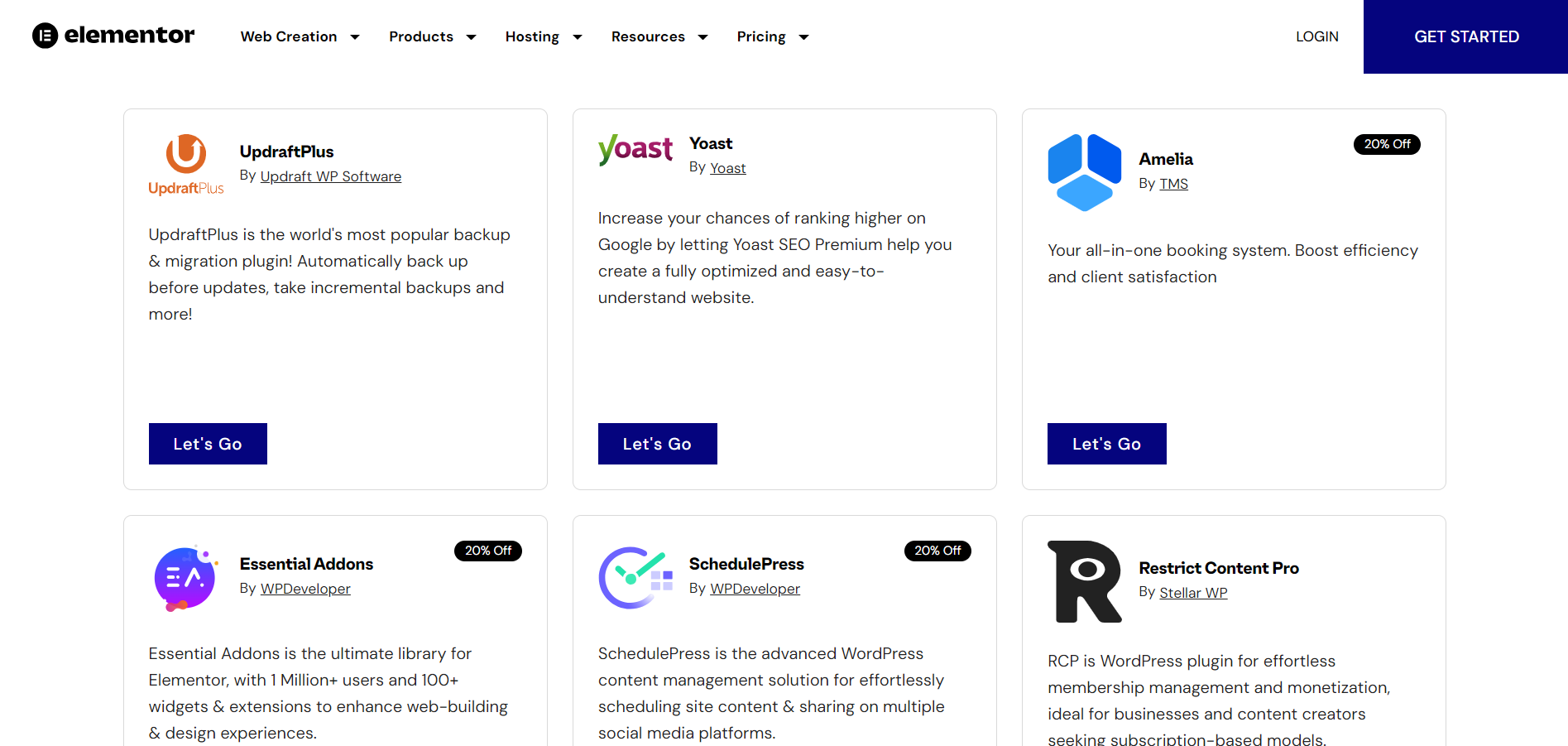
Marketing Features
Design FunctionalitiesRepresents how well each platform allows for creative design and customization of websites.Score Components:
- Template Variety (30%): Range and quality of design templates.
- Customization (30%): Flexibility and options for design alterations.
- User Interface (20%): Ease and intuitiveness of the design process.
- Responsiveness (10%): Adaptability to different devices and screen sizes.
- Innovation (10%): Unique design features and tools.
 7.8
7.8
 6.9
6.9
🏆
Overall Winner: Elementor
. Elementor stands out for its more advanced marketing tools, especially in SEO, email marketing, and ads and promotions. Tilda is strong in blogging and social media integration, ideal for content-driven strategies.

|

|
|
|---|---|---|
|
SEO Tools |
|
|
|
Email Marketing |
|
|
|
Blogging |
|
|
|
Social Media Integration |
|
|
|
Analytics and Reporting |
|
|
|
Ads and Promotions |
|
|
Customer Support
Customer supportEvaluates the quality and availability of support options.Score Components:
- Response time (40%): Speed of support responses.
- Support quality (30%): Effectiveness and helpfulness of the support.
- Availability (20%): Range of support channels (phone, chat, email).
- Resource richness (10%): Quality of self-help and educational materials.
 7.2
7.2
 5.5
5.5
🏆 Winner: Elementor
. In the Elementor vs Tilda comparison, Elementor takes the lead with a customer support score of 7.2. Elementor offers 24/7 support through ticketing and live chat, ensuring users can get help whenever they need it. This round-the-clock availability is a significant advantage for users who may encounter issues at any time.
Tilda, on the other hand, has a customer support score of 5.5. Tilda primarily provides support via email and encourages users to utilize their comprehensive Help Center for self-help. However, the lack of specified support hours and limited support channels may leave some users wanting more immediate assistance.
Overall, Elementor’s more robust and accessible support options make it the better choice for users seeking reliable customer support.
Security
SecurityLooks at the platforms’ security measures and data protection.Score Components:
- Data protection (40%): Safeguards for user and customer data.
- SSL and encryption (30%): Implementation of secure connections.
- Compliance (20%): Adherence to industry security standards.
- Regular updates (10%): Frequency of security updates and patches.
 9.1
9.1
 7.6
7.6
🏆
Winner: Elementor
. Elementor’s security measures are more comprehensive, leveraging Google Cloud’s infrastructure for high security, including end-to-end encryption. They also offer advanced hosting features, including the use of Google Cloud Platform’s C2 servers and integration with Cloudflare’s Enterprise CDN, to deliver fast loading times and global reach. Elementor employs both active and passive security measures, including 24/7 monitoring, regular updates, backups, and specialized security protocols to protect against common threats.
Although it may not offer the same level of specialized security features as Elementor, Tilda has implemented several measures to ensure GDPR compliance and enhance the privacy and security of websites created with its platform. These include features for cookie consent, privacy policies, GDPR-friendly forms, and options for managing data retention and deletion. Additionally, Tilda provides built-in security features such as DDoS prevention and HTTPS encryption to safeguard user data. However, compared to Elementor, Tilda’s security measures are not as robust.
AI Capabilities
AI capabilitiesMeasures the effectiveness of AI-driven features and tools.Score Components:
- Automation efficiency (40%): Impact of AI on streamlining processes.
- Personalization (30%): AI-driven customization for users or customers.
- AI-Assisted design (20%): Role of AI in website design and functionality.
- Data analysis (10%): Use of AI in interpreting user data and analytics.
 7.4
7.4
 2.1
2.1

|

|
|
|---|---|---|
|
AI Builder |
Elementor’s AI builder supports text, code, and image generation within the editor |
|
|
AI Ecommerce Features |
Elementor’s AI tools support the creation of online stores, including product pages and checkout |
|
|
AI Content Generation |
Elementor’s AI can generate text, correct grammatical errors, translate content, and generate web layouts |
Tilda’s AI can generate website content, including headlines and text blocks |
|
Additional AI Features |
Elementor supports the integration of third-party AI plugins |
|
🏆 Winner: Elementor
. With a score of 7.4, Elementor’s AI capabilities are more comprehensive, supporting a wide range of features from content generation to ecommerce. Its AI builder is a cutting-edge feature that transforms the website creation process, making it more efficient and creative.
Tilda, with a score of 2.1, only has an AI feature for text generation. It does not have an AI builder or AI ecommerce features, limiting its capabilities compared to Elementor.
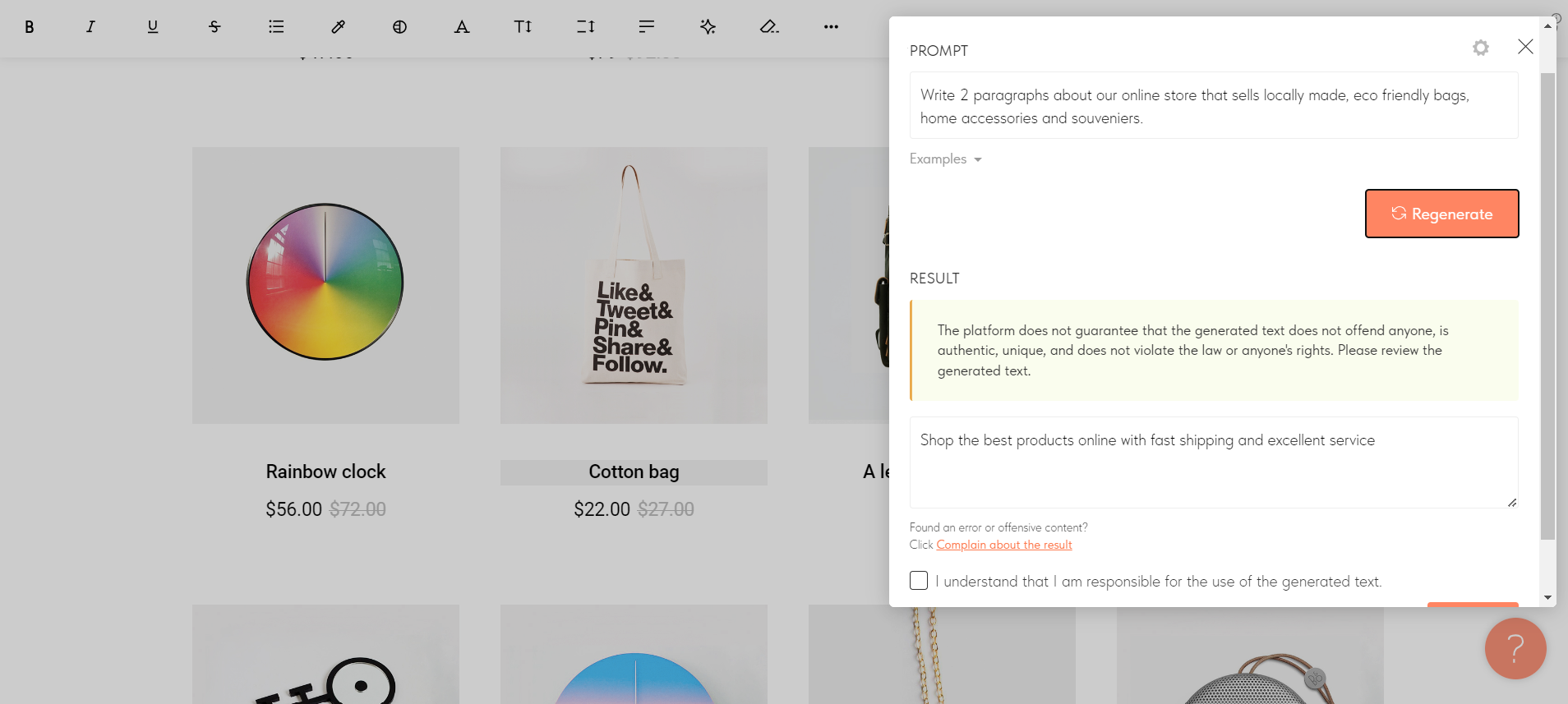
User Management
User ManagementAssesses the platforms’ capabilities in managing user roles, permissions, and accessibility.Score Components:
- Role Customization (40%): Flexibility in creating and defining user roles and
permissions. - Ease of Management (30%): User interface and tools for managing users.
- Access Control (20%): Effectiveness of access control measures for different user
levels. - Scalability (10%): Ability to manage a growing number of users efficiently.
 8.8
8.8
 7.3
7.3
🏆 Winner: Elementor
. Both Elementor and Tilda offer user management features, but Elementor’s flexibility and integration with WordPress roles and permissions give it an edge.
- Elementor operates on WordPress, so the number of users who can edit or manage a website depends on the roles and permissions set within WordPress. Administrators have full access to edit any part of the site, including Elementor settings, while Editors can manage posts and pages made with Elementor. Authors and Contributors have limited capabilities. Elementor Pro offers a Role Manager feature for further customization of what different roles can do within Elementor.
- Tilda’s Collaborators feature allows adding teammates with either Full or Limited access. Full access enables collaborators to edit, publish, delete pages, view requests and statistics, and make changes to built-in website services. Limited access allows the project owner to specify what actions the collaborator can perform. This feature is a premium offering, and adding more collaborators requires additional payment.
Elementor User Roles and Access Levels:
| Role | Description | Access Highlights |
|---|---|---|
| Administrator | Users with full access to all administration features, including Elementor settings. | Can edit all content, Access to Elementor settings, Can install plugins and themes, Can manage users |
| Editor | Users who can manage and publish content including pages and posts. | Can edit pages/posts created with Elementor, Cannot access Elementor settings, Can manage categories, tags, and links, Can moderate comments |
| Author | Users who can publish and manage their own posts. | Can create posts with Elementor, Cannot edit pages, Limited access to media library, Cannot access Elementor settings |
| Contributor | Users who can write and manage their own posts but cannot publish them. | Can create content with Elementor, Cannot publish or edit pages, No access to Elementor settings, Submissions require review by higher-level roles |
Additional Features

|

|
|
|---|---|---|
|
SSL Certificate |
|
|
|
Custom Domain |
|
|
|
Free Custom Domain Included |
|
|
|
International Domains |
|
|
|
Mobile Responsive |
|
|
|
Page Speed |
|
|
|
Website Builder Mobile App |
|
|
|
Convert a Website To An App |
|
|
|
Website Analytics |
|
|
|
Multilingual Sites |
|
|
|
Multiple Users |
|
|
User Feedback
Elementor is widely appreciated for its intuitive drag-and-drop interface, enabling rapid creation of professional and responsive websites without coding skills. It offers a vast range of templates and compatibility with WordPress, making it a go-to for diverse users. Despite its benefits, concerns arise regarding website loading times, subscription costs, and occasional compatibility issues. Feedback on customer support and legacy plan management is mixed, with some users experiencing dissatisfaction. Overall, Elementor is valued for its efficiency in web development, although some aspects, particularly support services, could be improved.
Tilda Publishing receives varied feedback from users, highlighting its strengths in offering a no-code, customizable website building experience with features like Zero Block for personalization and easy backend setup. Users appreciate its affordability, user-friendly interface, and responsive customer support. However, criticisms include buggy font customization, limited design elements, and instability in some of its features. Despite these drawbacks, many find Tilda beneficial for creating professional websites quickly and managing multiple sites under one plan, although some users advise caution due to issues with stability and customer support.
The making of this blog
We followed a clear, step-by-step process to write and research this article.
FAQ
Which platform is better for ecommerce, Elementor or Tilda?
Can I use both Elementor and Tilda for creating a blog or informational website?
How do Elementor and Tilda compare in terms of design and customization?
Which platform offers better value for money?
How do the website editors of Elementor and Tilda compare?
Which platform has better customer support?
Are there any differences in security measures between Elementor and Tilda?
Which platform is better for users with no coding skills?
Can I manage multiple websites with either Elementor or Tilda?
Which platform is recommended for users prioritizing AI capabilities?










